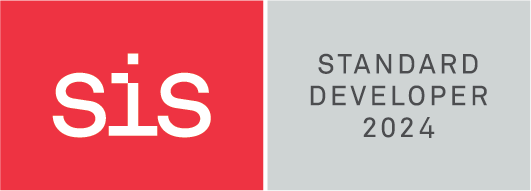Surface quality is a critical factor in many industries, affecting everything from product performance and longevity to its aesthetic appearance. To ensure consistently high quality, companies often adhere to strict industrial standards and norms for surface quality.
To understand how to best improve the surface quality of your products and adapt to industry standards, Toponova offers a comprehensive service in development of surface qualityHere you can gain insights and solutions that help you achieve the highest possible quality.
What is surface quality?
Surface quality refers to the characteristics that describe the smoothness, texture, and appearance of a surface. These characteristics can affect how a product functions, its durability, and its aesthetic value. Measurements of surface quality include parameters such as surface texture, waviness, surface roughness, and bearing properties.
Industrial standards for surface quality
Two international standards specify the parameters and methods for measuring profile and areal surface texture.
1. ISO 21920 och ISO 25178
These two international standards specify the parameters and methods for measuring surface texture using Profile or Areal(3D).
ISO 21920-1 is the new profile standard for surface texture that since 2023 replaces the previous standard ISO 1302 (4287, 4288, 13565, etc.)
ISO 25178-1 is the standard for areal surface texture that describes the rules for specification and control of surfaces in 3D.
Surface quality in various industries.
The requirements for surface quality can vary depending on the industry and application. Here are some examples of how surface quality standards are applied in different sectors.
Automotive industry
In the automotive industry, surface quality is crucial for both functional and aesthetic parts. Standards such as ISO 21920 and 25178 are used to ensure that components meet high requirements for surface texture and smoothness, which affects the vehicle's performance and appearance.
The aerospace industry.
In the aerospace industry, components must meet extremely high standards for surface quality to ensure safety and performance. Surface texture and roughness affect aerodynamics, wear resistance, and the material's fatigue properties.
Medtech industry
In medical technology, surface quality is important for hygiene and biocompatibility. Components used in medical devices and implants must have smooth and clean surfaces to minimize the risk of infection and ensure they are safe to use in the body and easy to keep clean.
The electronics industry
For electronic components, such as circuit boards and connectors, surface quality is crucial for electrical performance and reliability. Surfaces must be free from defects and contamination to ensure optimal function.
“Adhering to standards and norms for surface quality is crucial to ensure high quality and performance across various industries. By using internationally recognized standards, companies can ensure that their products meet strict quality requirements and perform at the highest level. At Toponova, we are committed to providing solutions that help our customers achieve and maintain high surface quality in their products.
Contact us at Toponova for more information on how we can help you improve the surface quality of your products according to applicable standards and norms.


